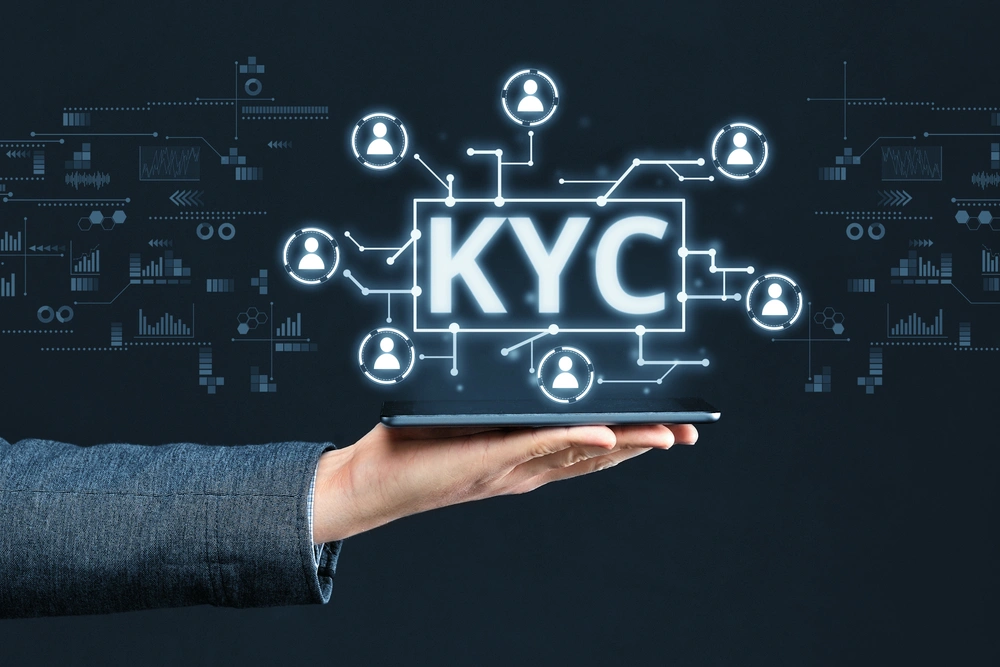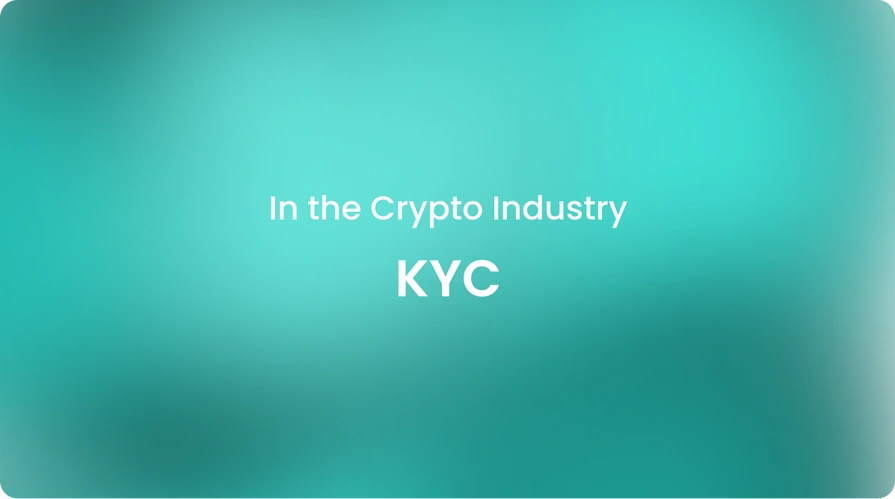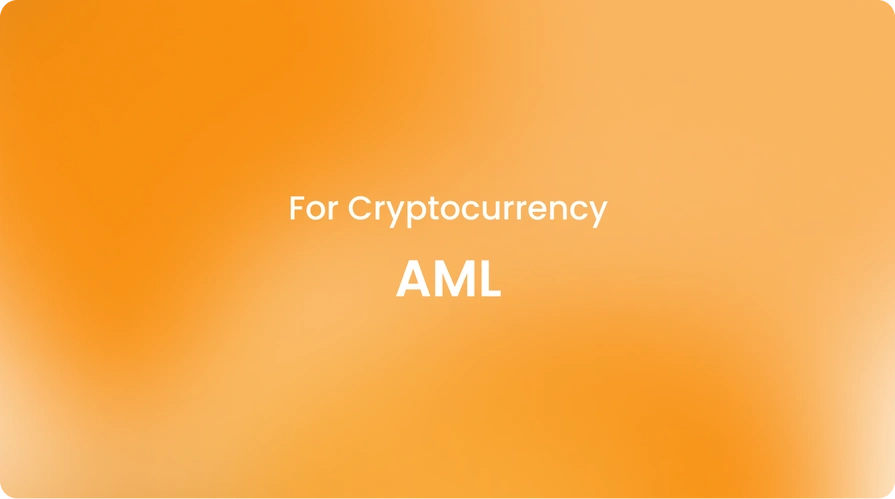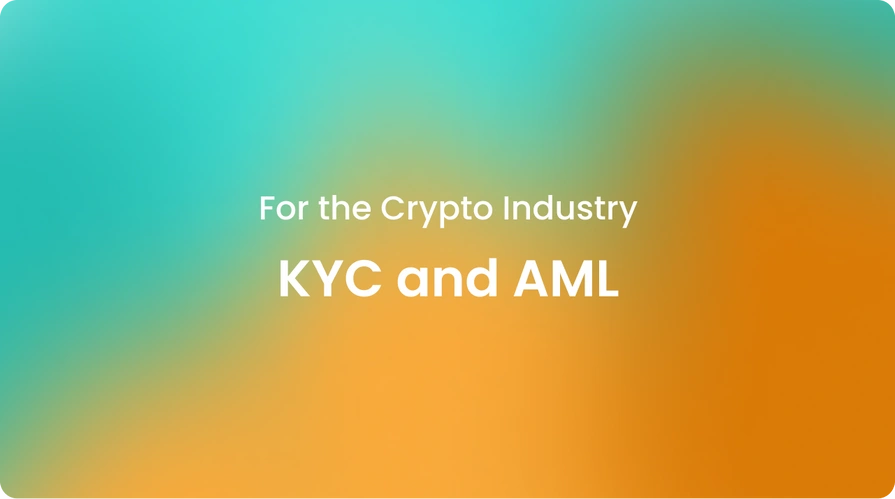|crypto, knowledgehub
What Is KYC on Crypto Exchanges?
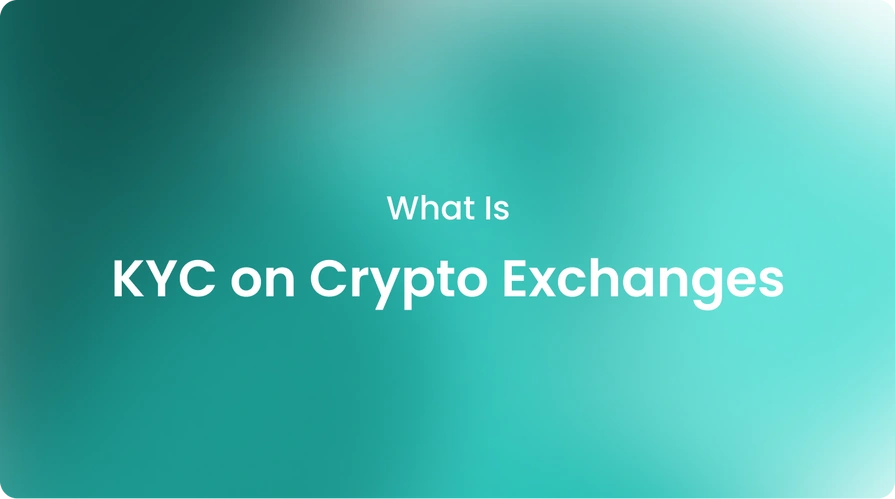
As the cryptocurrency industry continues to rapidly expand, so too does the need for regulation and oversight of this innovative digital asset space, such as KYC on crypto exchanges.
While many crypto advocates push for decentralization and anonymity above all else, the reality remains that governments and authorities aim to curb any potential for illicit activity taking place via these new financial systems.
In this article, we will explore the concept of Know Your Customer (KYC) in crypto, how it works, and why, for better or worse, businesses operating in this sector simply cannot avoid such regulations if they wish to remain legitimate.
By understanding how crypto KYC works, individuals will gain a fuller picture of both the challenges and opportunities of this promising new technology. So, let’s continue!
How does KYC work?
The KYC process starts by collecting identifying information from users, such as names, addresses, dates of birth, and associated identification documents.
Crypto exchanges then verify this data using identity verification technologies, sometimes involving automated checks and other times requiring human review. After verification, they continue to monitor account activity for any suspicious transactions that might eventually reveal criminal intent.
Periodic re-verification may also occur if there are major account changes. At its core, KYC aims to balance accessibility with ensuring legitimacy in the digital asset ecosystem.
Why does crypto need KYC?
While anonymity and decentralization are attractive to some crypto proponents, financial regulators remain primarily focused on national security, tax compliance, and anti-money laundering efforts.
Large exchanges must adhere to Know Your Customer rules to continue operating legally within these jurisdictions. Additionally, proper KYC gives comfort to many normal users that exchanges are responsible platforms free of illicit funds influencing markets.
Decentralized finance still hopes to challenge such oversight eventually, but centralized services will likely uphold KYC for the foreseeable future in order to cooperate constructively with global authorities.
Is KYC safe in crypto?
As with any system involving sensitive personal data, security is paramount for maintaining user trust in KYC protocols. There are some key ways to apply robust security for KYC verification.
Larger reputable crypto exchanges take extensive precautions, employing bank-grade encryption on servers, regular third-party security audits, multi-signature wallets requiring authorization from multiple parties to access funds, and more.
However, data leaks have still happened on smaller platforms with lax security in place. Users can feel safer going with tried and tested organizations like Cryptobunq, which is a one-stop-shop crypto service provider that prioritizes safety.
Cryptobunq offers robust security for its users with its expert solutions, such as a crypto exchange API, crypto checkout and invoicing, batch crypto payments, custody and wallet, and more. Individuals or business users can easily integrate CBQ solutions into their businesses and enjoy a safe crypto space.
What are the benefits of crypto KYC?
Implementing proper crypto KYC processes offers several key advantages, including:
- Reducing fraud and illicit activities on legitimate platforms
- Encouraging adoption by risk-averse mainstream audiences
- Appeasing government regulators seeking transparency
- Facilitating the transition to greater decentralization over an extended period of time
Proper KYC also gives exchange profiles on customers to better understand needs, identify repeat buyers for loyalty programs, and prevent impersonation attacks—all strengthening the user experience.
Why is KYC important for crypto exchanges?
For cryptocurrency exchanges hoping to avoid blacklistings or shutdowns by local regulators, following Know Your Customer protocols is essentially mandatory policy at this stage.
Legitimate KYC programs demonstrate these businesses take compliance seriously and are not conduits for criminal fundraising or tax evasion, as some critics assert of the industry.
By demonstrating a willingness to identify account holders, major crypto exchanges also avoid losing their banking partnerships or crypto payment rails.
Less-regulated Asian exchanges have demonstrated a willingness to forgo strict KYC, albeit at the cost of access to many Western users and integration with mainstream finance. Crypto KYC benefits compliant exchanges while retaining user bases.
Does KYC affect anonymity and decentralization?
On its surface, KYC requirements do clash somewhat with the pseudonymous ideals of decentralization that first drew many to cryptocurrency in its early days.
Requiring identification removes the complete anonymity once possible in the peer-to-peer system envisioned by Satoshi Nakamoto in the Bitcoin whitepaper. However, centralized exchanges offering fiat on/off ramps were perhaps always destined for regulation as hybrid entities.
Strict KYC requirements may push some underground, but overall, the policy aims to balance growth and oversight, not stamp out the technology. Also, decentralized financial advances such as privacy coins and non-custodial types of crypto wallets still offer quasi-anonymity to those who prioritize it most.
Do crypto wallets need KYC compliance?
Not all crypto wallets require full KYC compliance, but the level of compliance needed does vary. Non-custodial wallets, which do not hold users' private keys, allow for pseudonymous use without KYC.
However, custodial services that hold funds, such as Cryptobunq, function more like exchanges and have stricter "Know Your Customer" obligations because they are responsible for handling holder funds.
For verification and monitoring purposes, hot wallets directly connected to exchanges usually mirror the KYC policies of their parent platforms. However, cold storage hardware wallets with no third parties have no inherent KYC, maintaining user sovereignty above all else.
What does non-KYC mean?
In contrast to crypto exchanges that require comprehensive KYC protocols, "non-KYC" exchanges operate with fewer or no identity verification requirements. Instead of comprehensive document checks, some may only need an email confirmation or mobile phone number.
This looser approach fosters pseudonymity but introduces greater risks, as such platforms could potentially enable unlawful activities more easily without deterring bad actors.
Legitimate concerns exist about money laundering and other financial crimes flourishing on non-KYC crypto exchanges. However, advocates argue individuals should have a right to transact privately if they act within legal bounds themselves.
What is the risk of no KYC?
Non-KYC crypto exchanges provide de facto anonymity, but the absence of adequate identity verification exposes users to genuine risks. Money laundering, terrorist financing, tax evasion, and other illicit usage become more plausible on exchanges blinded to customer identities.
Furthermore, a lack of controls increases the risk of impersonation fraud, as bad actors can assume new identities at will. They also face regulatory uncertainty, potential blacklisting, and an overall lack of credibility and trust for the average user.
Protections such as fiat insurance, merchant payouts, and banking partnerships have become nearly impossible. For most users, proper KYC provides consumer safeguards that are worth the strict verification requirements.
Can you trade crypto without KYC?
In reality, it’s still possible to engage with cryptocurrencies with reduced or no KYC by taking advantage of non-compliant exchanges or even peer-to-peer transfer mediums. Such platforms, however, come with compromises on options and protections in exchange for pseudonymity.
Non-KYC exchanges typically offer fewer supported crypto coins, lower volume, unstable sites, and a lack of insurance. Without KYC verification, any substantial gains would be difficult to cash out in fiat currency.
For occasional small transactions, non-compliance may be reasonable, but larger investors typically require establishment security and compliance for serious participation to avoid negative circumstances.
Can you buy crypto without KYC?
While more involved private person-to-person transfers and non-KYC exchange access allow for unverified crypto purchases, the on/off ramping process to deposit or withdraw fiat faces its own constraints.
Major centralized fiat exchange gateways, crypto payment processors, and banking networks all implement strict KYC/AML policies now. Furthermore, anonymously transacting large amounts of money raises regulatory eyebrows.
Options remain, such as anonymously purchasing crypto gift cards with cash or buying crypto directly from local sellers. But the transition to and from fiat currencies becomes the critical point where identity checks activate, rather than the blockchain transactions themselves.
How do you avoid crypto KYC?
Given the reality that most major platforms require some form of verification, avoiding KYC altogether can be challenging without compromising usability or security.
One approach gaining traction among privacy-centric users involves combining non-custodial wallets with non-compliance exchanges supporting certain crypto coins.
From there, localized peer-to-peer marketplaces offer cash exchanges with sellers. The process maintains reasonable anonymity but involves rebuilding trust networks from scratch.
A safer path for most users starts with proper verification on reputable platforms, such as Cryptobunq, then exploring privacy-focused projects as technical literacy increases over time.
Which crypto exchange has no KYC?
Some crypto exchanges that operate outside of KYC are entirely non-custodial. However, liquidity and adoption remain relatively low compared to major centralized platforms. Most large regulated exchanges have already implemented KYC checks in order to remain active.
For example, Cryptobunq is a secure crypto service company with verified KYC processes. You can easily buy, manage, and exchange your crypto assets on CBQ without worrying about the security risks. If you want to further explore our expertise, make sure to check out our latest case studies!
A final word
With growing institutional involvement and the development of user-friendly crypto services, regulations like KYC verification are likely to stay on centralized platforms to facilitate mainstream adoption. However, that just means developing in parallel the uncensorable, open finance protocols of tomorrow.
Broader cryptocurrency regulations aim to weed out illicit activity while preserving individual economic freedoms—a balance that can be achieved through proportionate oversight and innovation outpacing restrictions.
If executed responsibly and neutrally by all parties, such compliance need not impede decentralization as an architectural property or an ethos. But still, KYC on crypto exchanges is necessary to keep the system secure for the users.
Cryptobunq is an expert crypto service provider that uses blockchain technology to provide security, efficiency, and transparency for you and your business. Contact us today and explore our crypto and blockchain solutions tailored to your projects!
